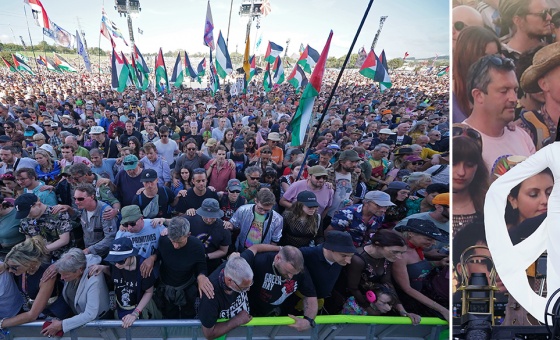This is the last article you can read this month
You can read more article this month
You can read more articles this month
Sorry your limit is up for this month
Reset on:
Please help support the Morning Star by subscribing here
LABOUR once again betrayed the people of Gaza today as it allowed petty Commons wrangling to overshadow calls for an immediate ceasefire.
Desperate to avert another rebellion by his MPs demanding an end to Israeli genocide against the Palestinians, party leader Sir Keir Starmer prevailed on the Commons Speaker to tear up the rules to get him off the hook.
Speaker Lindsay Hoyle overruled expert advice to permit a vote on Labour’s own heavily qualified ceasefire amendment, in breach of convention.
Sir Keir had tabled the amendment, calling for “an immediate humanitarian ceasefire” to head off Labour MPs from voting for a clearer, stronger motion moved by the Scottish National Party.
He feared that if MPs were not given a vote on his own proposal they would back the SNP call in even greater numbers than the 60 who defied the whip last November, the biggest rebellion of his leadership.
The government had also tabled an amendment to the SNP motion, calling for an eventual ceasefire preceded by any number of mainly Israeli-mandated preconditions.
This meant that the Labour amendment should not have been put to a vote, according to Commons rules.
But after aggressive behind-the-scenes Labour lobbying, the Speaker allowed both amendments to be voted on, giving the Labour whips every chance to minimise the number of rebels.
Labour MPs could claim to their constituents that by supporting Labour’s text they had backed a ceasefire, and hope no-one noticed the built-in qualifications.
Despite the shabby manoeuvring, if Labour’s amendment is defeated by Tory votes, a number of Labour MPs are expected to still rebel and back the SNP call.
The votes were still awaiting as the Morning Star published this story.
Clerk of the House Tom Goldsmith went public with his dissent, issuing a letter rebuking the Speaker for a “substantial breach” of Commons conventions.
And one Tory minister said that “any last semblance of impartiality is now gone. The speaker has buckled to Labour. This is a bad day for democracy and Parliament.”
Deepening their disgrace, Labour MPs then delayed the start of the debate by raising spurious points-of-order and forcing an unnecessary vote to waste parliamentary time.
Amid this parliamentary posturing, the suffering of the people in Gaza was all but forgotten.
During the debate, former Labour leader Jeremy Corbyn urged the government to back the ruling of the International Court of Justice, which “effectively called for an immediate, unilateral halt to the hostilities by Israel against the people of Gaza.”
Foreign Office minister Andrew Mitchell stressed that the government “continues to support Israel’s right to defend its people against Hamas’s terror.”
But he added that “we want to see Israel take greater care to limit its operations to military targets and avoid harming civilians and destroying homes.”
SNP Westminster leader Stephen Flynn had earlier pointed out that “60 per cent of the buildings in Gaza are damaged or destroyed,” 1.4 million Palestinians were sheltering in Rafah “awaiting an Israeli onslaught” and 30,000 were dead.
“That does not amount to self-defence,” he said.
The SNP’s Anum Qaisar called for a halt to British arms sales to Israel.
Shadow foreign secretary David Lammy claimed that “Labour is saying unequivocally that we need an immediate humanitarian ceasefire to end the bloodshed and the suffering.”
As protesters gathered outside the Commons in advance of the votes, there was at least the consolation that the debate was moving their way, since some form of a break in hostilities was now the Westminster consensus and all parties were opposed to an Israeli attack on Rafah.









